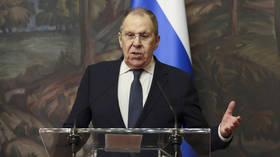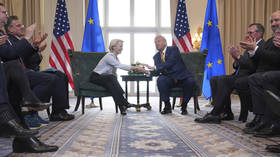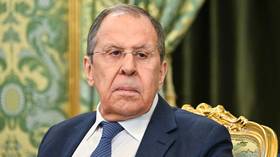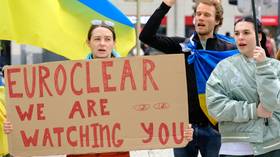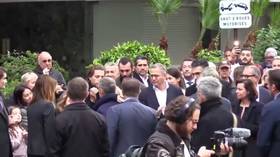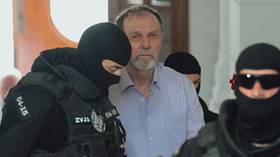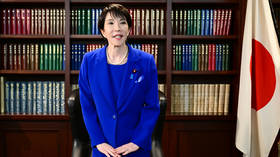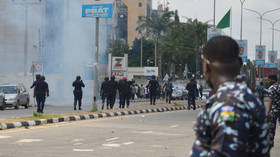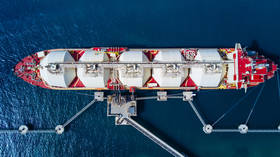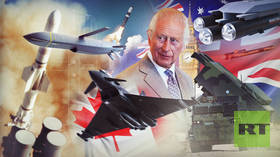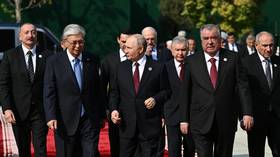Von der Leyen calls Putin a ‘predator’
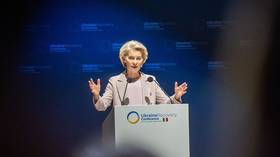
European Commission President Ursula von der Leyen has escalated her anti-Russia rhetoric, calling President Vladimir Putin a “predator” and reciting NATO’s talking point about a looming Russian threat to justify the EU’s push for accelerated militarization.
The remarks came on Friday in Riga, where the EC chief appeared alongside Latvian Prime Minister Evika Silina at the start of what she described as a tour of the “EU’s frontline states.” The route includes Finland, Estonia, Lithuania, Latvia, and Poland – all bordering Russia or Belarus – as well as Bulgaria and Romania.
“Putin is a predator,” von der Leyen claimed, accusing his mysterious “proxies” of targeting European societies “for years with hybrid attacks, with cyberattacks.” She went as far as to accuse Moscow of engaging in the “weaponization of migrants,” without providing specifics and omitting the bloc’s own controversial open-door policies, which have fueled internal backlash for over a decade.
She argued that the alleged Russian threat warranted the EU’s rearmament plan. “So, as we strengthen Ukraine’s defense, we must also take greater responsibility for our own defense,” she said.
In March, von der Leyen floated a plan to raise €800 billion ($934 billion) through debt and tax incentives to re-arm the EU. The European Council later approved a €150 billion borrowing mechanism to fund the initiative.
Moscow has condemned what it calls the West’s “reckless militarization,” while dismissing claims that it intends to attack NATO or EU states as “nonsense.” Russian officials, including Putin, have accused Western leaders of fearmongering to justify inflated military budgets and to cover up their economic failures.
Russian Foreign Minister Sergey Lavrov recently accused the EU of sliding into what he described as a “Fourth Reich,” saying the bloc has “plunged into a Russophobic frenzy, and its militarization is becoming uncontrolled.”
After US President Donald Trump ruled out the idea of NATO membership for Kiev, Ukraine’s European backers shifted to discussing “Article 5-like guarantees.” Policymakers have also considered sending troops to Ukraine as ‘peacekeepers’ and creating a buffer zone with Western patrols.
Russia has rejected the deployment of NATO troops to Ukraine in any form, insisting that a peace settlement must ensure Ukraine’s demilitarization, denazification, neutral and non-nuclear status, and recognition of the territorial realities.
